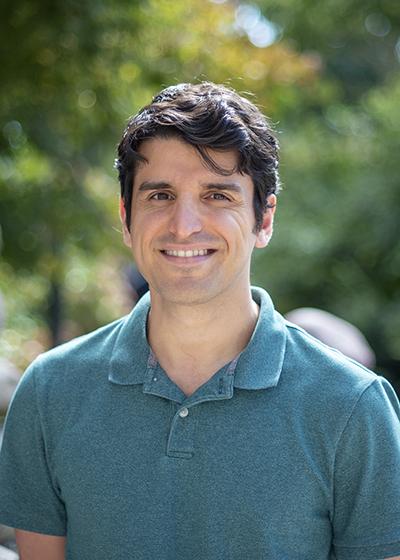- Title: Assistant Professor of Energy and Mineral Engineering
- Department: John and Willie Leone Family Department of Energy and Mineral Engineering
ABOUT
Q: What are your current research interests?
My research interests revolve around porous materials with applications to energy and environmental applications. These include subsurface rocks that are used to sequester CO2 or store H2, soils that require cleanup from contamination, or fuel-cell and battery components that are porous and crucial for the optimal operation of these devices.
Q: What lead you to your specific field and when did you know you wanted to pursue a career in your specific field?
I knew early in grad school that I wanted a career in research but didn’t know quite on what topic. My whole focus area, and more generally academic identity, evolved quite organically.
Describe your teaching philosophy or teaching style.
If I can spark someone’s curiosity to pursue a topic (or even to look it up on Wikipedia or something) outside of class, driven by their own interest, and without feeling the need to satisfy some rubric, I would consider that the ultimate achievement in teaching.
STUDENT RECRUITMENT
Q: What makes the College of Earth and Mineral Sciences unique and why come to Penn State and choose a major in EMS?
EMS is diverse and the people in it work on important problems that will define the fate of the century we live in. The include, among others, energy, environment, and the climate.
Q: Why should students choose a major in your field?
Because the science is cool, the field is young and full of opportunities for growth and recognition, and the problems to be solved are existential to humanity.
Q: What are some of the career opportunities for students who a choose major in your field?
They can work on any energy, environmental, or even human health related problem where porous materials play a central role. Examples include geologic CO2 sequestration, hydrogen storage in the subsurface, design of optimal battery electrodes or gas-diffusion layers for fuel cells, and face masks.
Q: What advice would you like to share with incoming or current students?
Choose what you are truly interested in working on. Something that gives you a higher purpose than a mere job after graduation, which is important but not everything.
PERSONAL
Q: What would people be surprised to learn about you?
I sing and sometimes dance (more in the past).
Q: Can you tell us a fun fact about yourself?
I have lived on three continents.
Q: Did you go to college with the intention of getting the job you have now? If not, briefly explain how you came to the position you're in now at the University.
College no, grad school yes. Path was super tortuous and full of ups and downs. How I ended up here was one part luck and one part persistence.
Q: What is the most helpful advice you’ve received?
Do your own thing and be aware of, but don’t compare yourself to, others.


